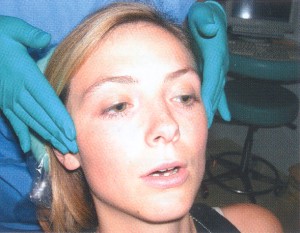
The joint between your upper and lower jaws, just in front of your ears, is called the temporomandibular joint ('TMJ' for short). Cartilage (a gristly substance) separates the bone surfaces. The jaw joints can occasionally cause problems, which your dentist can help diagnose and treat.
© Stalybridge Dental Care 2009 - 2024
Last updated: 28 November 2023